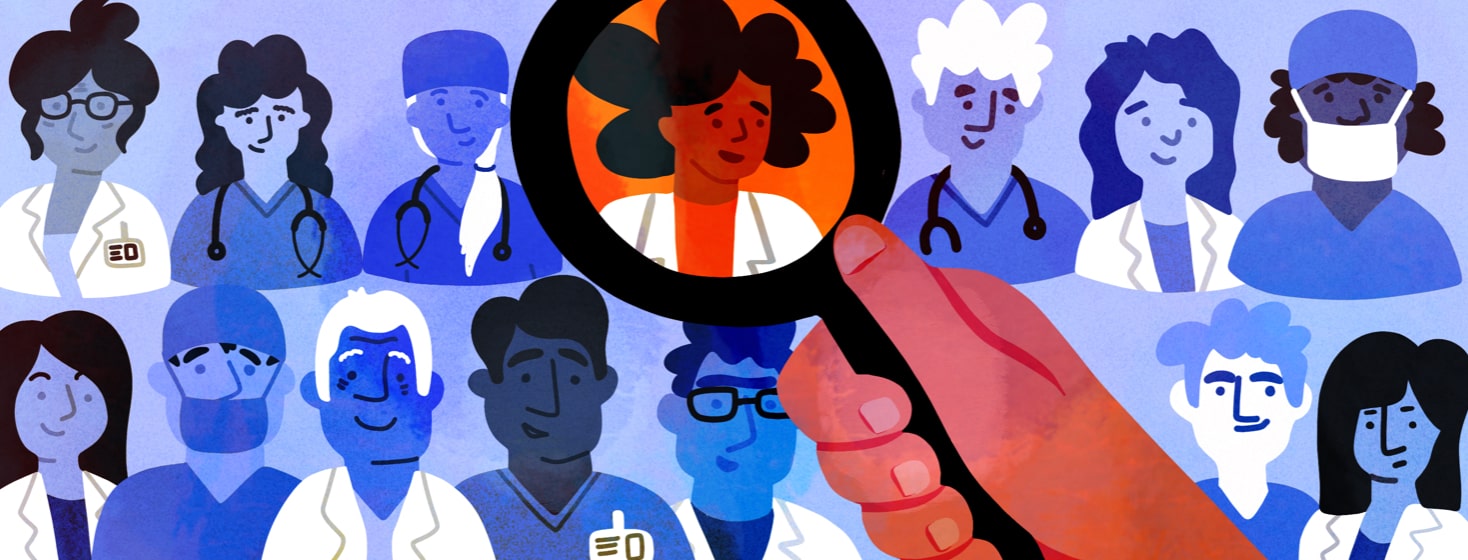Deciding on a Career as a Physician with Sickle Cell
The third year of medical school is all about career exploration. We rotate through many of the major specialties in the field of medicine such as: obstetrics and gynecology (OBGYN), psychiatry, family medicine, neurology, internal medicine, pediatrics, and surgery. We also get to throw some other fields and sub-specialty electives in there. So far, I’ve done my OBGYN, psychiatry, radiology, and pathology rotation. I’m halfway through my family medicine rotation right now.
Finding my career path
When I started medical school, I was certain I was going to become a pediatric hematologist because I knew I wanted nothing more than to care for others with sickle cell. But through medical school and my experiences as a researcher, I started to realize sickle cell warriors didn’t really need more pediatric hematologists.
Advocating for everyone
We need more advocates in all the other fields of medicine. Especially in the emergency room where our waits to receive care are far too long. Or in adult medicine where sickle cell warriors are often left to fend for themselves after they turn 18. So, I started to consider somewhere I could best serve as many sickle cell warriors as possible and fill a gap in their care.
I thought about doing med-peds which basically allows me to care for children through adulthood, covering the major gap in the transition of care for sickle cell warriors. But then I realized that left out their families and pregnant warriors. So, I fell in love with family medicine. As a family medicine physician, I could meet a lot of the different needs of sickle cell warriors across their whole life span, through family planning and pregnancy, and care for their loved ones too.
The strain on my health
I knew medical school and all of my medical training would be difficult but I did not expect the strain it would put on my health. The first two years were hard, but they were mainly lectures and not physically demanding. The stress I felt from studying and balancing extracurriculars was mainly mental and emotional.
Fast forward back to the present. During the clinical years, which starts third year, you basically balance working full time and studying. We’re still students so we’re not paid, and we often get off earlier than the doctors, but when we leave, we still have to study for our tests. The hours we work can be really draining as well and I’m waking up earlier than ever.
Exhausted
The exhaustion I have felt this year is truly hard to explain but I know all third-year medical students can relate.
I feel exhausted in every sense of the word – physically, emotionally, mentally, and sleep-deprived. Though I have loved every rotation so far and could genuinely see myself happy in most fields of medicine, I’m starting to think more about the toll on my health.
Trying to find work-life balance
I’m considering fields that offer better lifestyles – good hours, work-life balance, not too physically demanding.
I wonder if other medical students can relate to this. I have always found some aspects of medical school to be extra challenging with a chronic illness. But do others worry about how their career choice may impact their health overall? Or if they’ll be able to survive the rigors of certain specialties. I’m not sure yet what that means in terms of my future career, but luckily I still have time to figure it out. No matter what specialty I decide on, I plan to put my mental, emotional, and physical well-being first.

Join the conversation